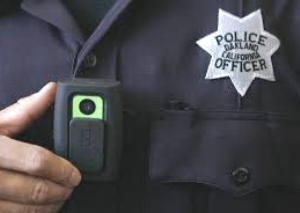
Who watches the watchers when they aren’t wearing their lapel cameras? That’s the tech-centric question at the heart of a scandal that’s been raging in New Mexico since federal investigators accused Albuquerque police officers of routinely using excessive force and violating suspects’ civil rights. Cops in the city are supposed to wear small video cameras on their lapels or helmets to record traffic stops, foot chases, shootouts, and other encounters.
The self-surveillance is supposed to deter them from lapsing into brutality. But last week the US Justice Department claimed that crooked officers for years have been flouting the rule to hide their culture of violence. The revelations are now scrambling preconceived notions about video cameras and government eavesdropping, according to Daniel Castro, senior analyst at the Information Technology and Innovation Foundation, a think tank in Washington,
“You don’t want to increase the police state by using surveillance,” Castro told VICE News. “You want to decrease it by using surveillance.” The ACLU and others who often decry Big Brother are in favor of using cameras to hold cops accountable for their actions.
Police unions that -on the outside appear to- support deploying the most Orwellian technology, meanwhile, are resisting their use. The unions are preferring the “on/off” use of the camera systems and thus becoming a roadblock in the technologically-available practice of “always on” recording.
Albuquerque police chief Gorden Eden won’t admit overuse of deadly force in the recent shooting of James Boyd. Those ironies aren’t surprising, said Castro. Cameras have always provided defense attorneys as well as cops with evidence. […]
Source: vice.com
